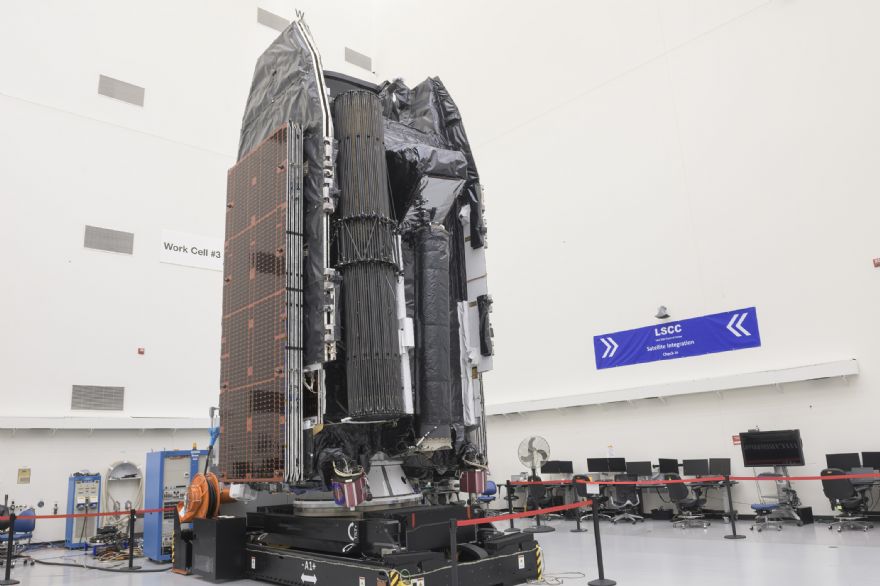 Boeing
Boeing has delivered ViaSat-3 F2, the second spacecraft in Viasat’s next-generation ultra-high capacity constellation, after integrating Viasat’s payload with Boeing’s 702MP+ platform — optimised for high power and all-electric propulsion — at the company’s satellite factory in California; it is scheduled for launch aboard a United Launch Alliance Atlas rocket.
Michelle Parker, Boeing Space Mission Systems’ vice president, said: “Our goal is to enable missions with reliability and timely delivery. With ViaSat-3 F2, we leveraged proven 702 heritage, advanced power systems and all-electric propulsion to enable high-speed connectivity. As the second of three ViaSat-3 satellites, F2 marks another step toward Viasat’s flexible global network designed to connect users on land, at sea, and in the air. ViaSat-3 features a highly flexible payload designed by Viasat to add 1Tbps capacity to the operator’s global network.”
All-electric propulsionThe Boeing-built 702MP+ features efficient all-electric propulsion, structural enhancements to host Viasat’s advanced payload, and high-power generation and storage to support sustained high-throughput operations. The satellite incorporates advanced solar array technology from Boeing subsidiary Spectrolab and benefits from Boeing’s ‘decades of geostationary mission success, including more than 60 702-class spacecraft built for commercial and government customers’.
Meanwhile, Boeing has announced that the Norwegian Group airline has ordered 30 737-8 aircraft, which represents the group’s first direct Boeing order since 2017 and increases its 737 MAX order book to 80 of these aircraft. Furthermore, Turkish Airlines has announced a firm order for up to 75 787 Dreamliners, the airline’s largest-ever Boeing widebody purchase; it includes 35 of the 787-9 model, 15 of the larger 787-10, and options for 25 787 Dreamliners.
The airline also announced its intent to purchase up to 150 more 737 MAX aircraft, which will be its largest Boeing single-aisle order when finalised. The 787 and 737 MAX orders combined will double Turkish Airlines’ Boeing fleet.